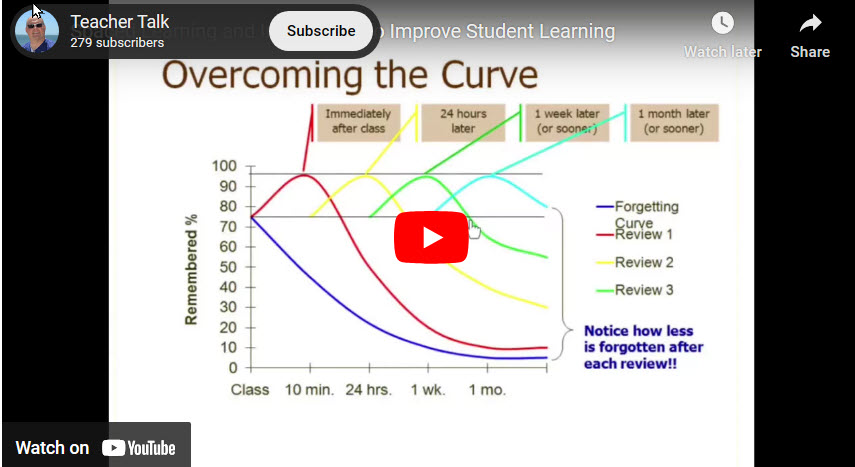Which is better for learning A&P cumulative or serial testing?
Anatomy and physiology courses usually have a lot of tests including quizzes, midterm exams and a final exam. The theory is that this approach provides students an opportunity to miss some questions and still secure a high grade.
But the question then arises does this approach also support long-term learning? It turns out that cumulative testing that always includes some questions from previous sections of material better supports long-term retention of information.
Why would this be the case? Research shows that relearning material solidifies knowledge in the mind. Cramming can get you the A in anatomy and physiology you want. However, it will be a hassle later when you get to your graduate work in a healthcare profession and do not remember much about what you studied.
Spaced study and relearning
Cumulative testing forces spaced study and relearning. Spaced study that allows some time for forgetting the information and then relearning it works to establish long-term retention in all types of scholarship. But it is an especially important approach in human anatomy and physiology because of the biology of the body.
The human body is divided into systems and compartments for study. But, all the compartments are integrated. For example, if you cram for the bone exam and do not remember bone names when you get to muscles, memorizing muscle names is very hard. And, because of homeostatic mechanisms, physiology is almost impossible to memorize.
Forgetting promotes learning
This YouTube video was made to help teachers use what psychologists now know about human memory and learning as they set up their courses. However, the video does a good job of explaining optimal timing of the spacing of study for long-term retention. The specifics presented will also help busy anatomy and physiology students optimally schedule their study time.
More about new learning:
Spacing Your A&P Study by Kevin Patton
Do you have questions?
Please put your questions in the comment box or contact Dr. Reece directly at DrReece@MedicalScienceNavigator.com, or on Pinterest, or on LinkedIn.
Margaret Thompson Reece PhD, Physiologist, Medical Research Scientist and Laboratory Director during over 20 years in OB/Gyn clinical departments at academic medical centers in California, New York and Massachusetts, is now Manager at Reece Biomedical Consulting LLC.
Asna educator, she taught physiology for over 30 years to undergraduate and graduate students, at two- and four-year colleges and universities, in the classroom and in the research laboratory.
Experience taught here that the best way for premed students to get the B+ or better grade in A&P that is required for acceptance to medical training, the first time through the course, is to describe body processes on exams in terms of neural, cardiovascular, and endocrine involvement.
Her books help A&P students struggling to master the chemistry of human physiology. They are “Physiology: Custom-Designed Chemistry” and “Inside the Closed World of the Brain.” More about her books is available at https://www.amazon.com/author/margaretreece.
For those preferring video training, she offers an online course “30-Day Challenge: Craft Your Plan for Learning Physiology”
Dr. Reece offers a free 30 minute “how-to-get-started” phone conference to students struggling with human anatomy and physiology. Schedule an appointment by email at DrReece@MedicalScienceNavigator.com.



